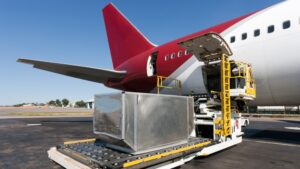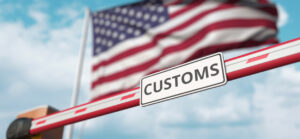
The Foreign-Direct Product Rule is a provision of the Export Administration Regulations that extends extraterritorial coverage of U.S. export controls to certain items produced abroad.
Watch as George Thompson explains the criteria under which some foreign products are subject to the EAR and are thereby within the scope of export controls even if they have no physical U.S. origin content.
Transcript of The Foreign-Direct Product Rule
Hello again, this is George Thompson, and today’s discussion topic is the Foreign-Direct Product Rule. This is a provision in the Export Administration Regulations that extends extraterritorial coverage of U.S. export controls to certain items produced abroad. Such foreign products are considered subject to the EAR, and therefore within the scope of export controls even if they have no physical U.S. origin content.
There are two separate criteria under which this can occur.
First, a foreign-made item is “subject to the EAR” if two conditions are met. The item must be the “direct product” of U.S.-origin technology or software controlled for National Security, or NS, reasons. The technology or software also must require a written assurance from the foreign recipient as a supporting document for an export license or the use of license exception TSR. In addition, the foreign product itself must be subject to NS controls.
So, for example, certain semiconductor design and production software and technology is NS-controlled and requires a written assurance. If used abroad to make semiconductors that are themselves NS-controlled as well, they fall within the rule.
The second condition is that the foreign-made product is destined for a country in Country Groups D:1, E:1, or E:2. These include China and Russia among a number of others.
Alternatively, a foreign-made product is covered if it is made by a foreign plant or major component of a plant which itself is a direct product of U.S.-origin software or technology, and which requires a written assurance. In addition, the foreign-made product must itself be covered by a Commerce Control List provision that is subject to NS controls.
Therefore, complying with the rule requires an understanding of the control status of the U.S. technology or software used abroad, as well as of the foreign-made product.
Next time, we’ll discuss the newly-expanded foreign direct product rule specifically for Russia.
Thompson & Associates, PLLC provides representation in all aspects of customs laws and regulations, specializing in export and import regulations and international business counseling. We can be reached at 202-772-2039 or online.







